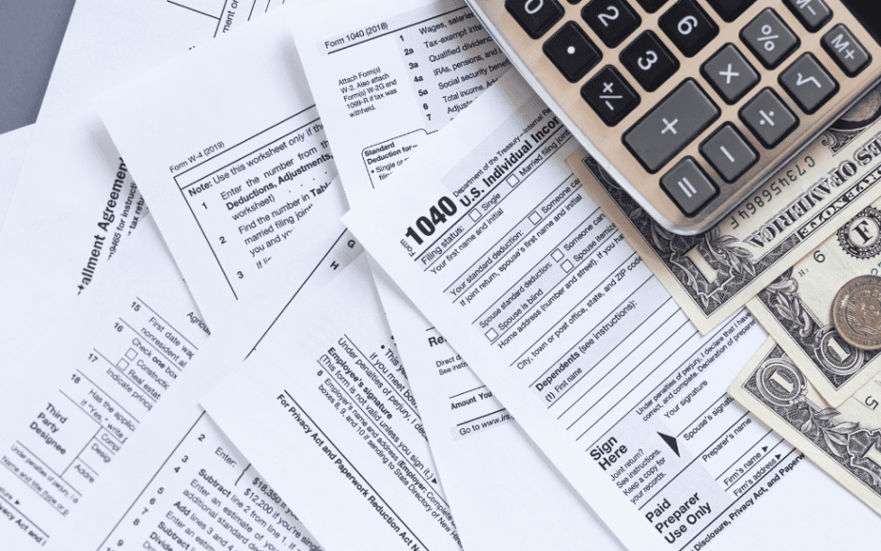In the world of small business, bookkeeping is a crucial task that often gets delayed or overlooked. Yet, maintaining up-to-date financial records is essential, especially when tax season rolls around. If your books have fallen behind, catch-up bookkeeping can make a significant difference. It helps businesses get back on track, ensures compliance with tax regulations, and offers peace of mind during tax preparation.
A survey by the National Small Business Association revealed that 33% of small business owners found bookkeeping and accounting to be their least favorite task. This often leads to delays and backlogs in maintaining financial records. Catch-up bookkeeping is the solution to this common problem, providing a way to get financial records back in order and ready for tax filing.
1. What is Catch-Up Bookkeeping?
Catch-up bookkeeping involves updating and reconciling your financial records after falling behind. This process is particularly beneficial for businesses that have missed months—or even years—of financial data. A professional bookkeeper will review past transactions, reconcile bank statements, and ensure that all financial data is accurately recorded.
This process not only provides a clear picture of your business’s current financial status but also prepares you for tax season. When you have accurate records, you can avoid the stress and financial consequences of filing incorrect tax returns.
2. Reduces the Risk of Tax Penalties
One of the biggest risks of falling behind on bookkeeping is the possibility of incurring penalties from the IRS due to incorrect or late filings. Inaccurate or incomplete records can lead to errors in tax filing, which may result in audits, fines, and interest charges. According to a report from the IRS, approximately 40% of small businesses incur penalties due to late or incorrect tax filings.
Catch-up bookkeeping helps mitigate this risk by ensuring that all financial transactions are accurately recorded before tax filing. This means you’ll have the correct data for deductions, credits, and other tax-related calculations, reducing the chances of making costly mistakes.
3. Maximizes Tax Deductions
When your financial records are incomplete or disorganized, it’s easy to miss out on valuable deductions. Expenses like office supplies, mileage, and business meals can add up significantly, and each missed deduction is a missed opportunity to reduce your taxable income. By catching up on your bookkeeping, you can ensure that every deductible expense is accounted for.
Professional bookkeepers can identify potential deductions that might have been overlooked during the year. For example, small business owners may be eligible for deductions related to home offices, utilities, or travel expenses. Catch-up bookkeeping ensures that all eligible expenses are documented, helping you maximize your tax return.
4. Facilitates Better Financial Planning
Accurate and up-to-date financial records are essential for effective financial planning. Monthly bookkeeping provides insights into your cash flow, expenses, and overall financial health. When your records are behind, it’s challenging to make informed decisions about budgeting, investments, or future business growth.
With catch-up bookkeeping, businesses can get a complete view of their financial history, enabling better planning for the upcoming tax season and beyond. This helps you understand your cash flow patterns, identify areas where you can cut costs, and plan for future investments or expansions. With this data, you can also forecast your tax liabilities more accurately, allowing you to set aside the appropriate amount of money for taxes throughout the year.
5. Saves Time During Tax Season
Tax preparation can be a time-consuming process, especially if you’re scrambling to organize months of disorganized receipts, invoices, and bank statements. Catch-up bookkeeping helps streamline this process by ensuring that all financial records are organized and ready before tax season starts.
Instead of spending hours trying to track down missing information or making last-minute calculations, you can focus on filing your tax return. This saves time and reduces the stress that often accompanies tax preparation. Professional bookkeepers can also work directly with your accountant, providing them with the accurate data needed for filing, thus further simplifying the process.
6. Enhances Accuracy and Compliance
The complexity of tax regulations can make it difficult for small businesses to maintain compliance, especially when records are incomplete. With catch-up bookkeeping, you ensure that every transaction is properly categorized and that all financial data aligns with IRS regulations.
Having accurate records also makes it easier to comply with state and federal tax requirements. For instance, maintaining correct records of income and expenses can help businesses comply with sales tax regulations, payroll taxes, and other requirements that vary by state. This is especially important for small businesses operating in states with complex tax codes, where errors can lead to audits or fines.
7. Prepares You for Future Audits
No business wants to face an audit, but being prepared is the best way to navigate one successfully. If your books are behind, you are more vulnerable to mistakes and discrepancies that could trigger an audit. Even if you don’t face an audit, being prepared with accurate records can save you time and stress if the IRS asks for additional information.
With catch-up bookkeeping, you can ensure that all transactions are properly recorded and categorized, making it easier to provide any requested information to the IRS. This can be a lifesaver if you are ever required to justify your expenses or income during an audit. Proper documentation and accurate records are your best defense in such situations.
Conclusion: Why Catch-Up Bookkeeping Matters for Tax Preparation
Staying on top of your financial records is crucial for small business success, but sometimes things fall through the cracks. When this happens, catch-up bookkeeping can be a lifesaver, helping businesses ensure accuracy, compliance, and efficiency during tax preparation. By investing in this process, you not only avoid the risks of penalties and audits but also maximize your deductions and gain better control over your finances.
Catch-up bookkeeping is more than just getting your books in order; it’s a proactive step towards sustainable financial management. Whether you’re a small business owner who has fallen behind or you’re looking to streamline your tax preparation process, catch-up bookkeeping can provide the clarity and peace of mind you need.
Your Partner in Catch-Up Bookkeeping
Struggling to catch up on your books? Let OneBooks help you get back on track and prepare for tax season with ease. Reach out today and see how we can turn your financial chaos into clarity!
Ready to get your books in order and breeze through tax season? Contact OneBooks today for expert catch-up bookkeeping services!
Areas We Serve in Colorado
| Location |
|---|
| Baker, Denver, CO |
| West Washington Park, Denver, CO |
| Athmar Park, Denver, CO |
| Platt Park, Denver, CO |
| Speer, Denver, CO |
| Lincoln Park, Denver, CO |
| Overland, Denver, CO |
| Rosedale, Denver, CO |
| Ruby Hill, Denver, CO |
| University, Denver, CO |
| Location |
|---|
| Capitol Hill, Denver, CO |
| Sun Valley, Denver, CO |
| South Broadway, Denver, CO |
| Cherry Creek, Denver, CO |
| Highlands, Denver, CO |
| City Park West, Denver, CO |
| Auraria, Denver, CO |
| Congress Park, Denver, CO |
| Jefferson Park, Denver, CO |
| Belcaro, Denver, CO |






